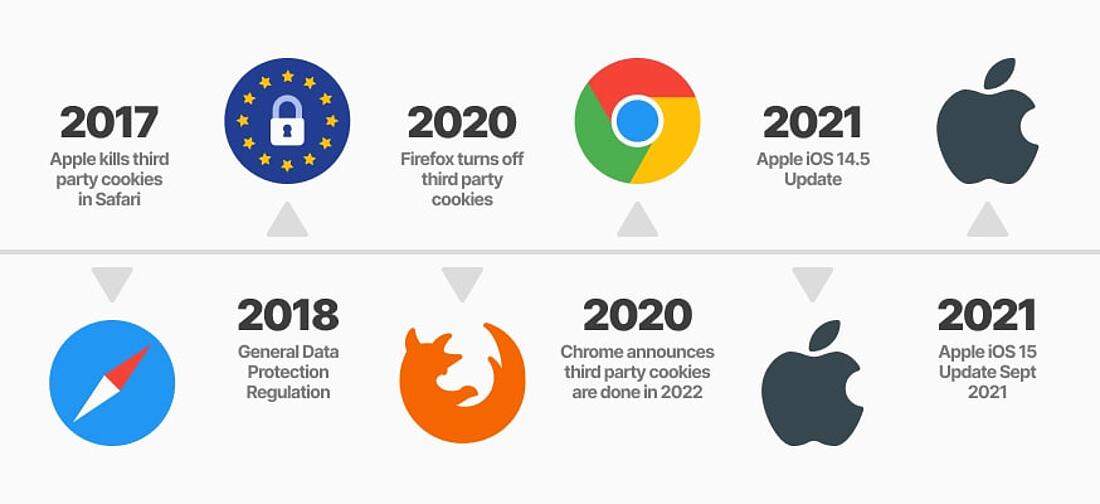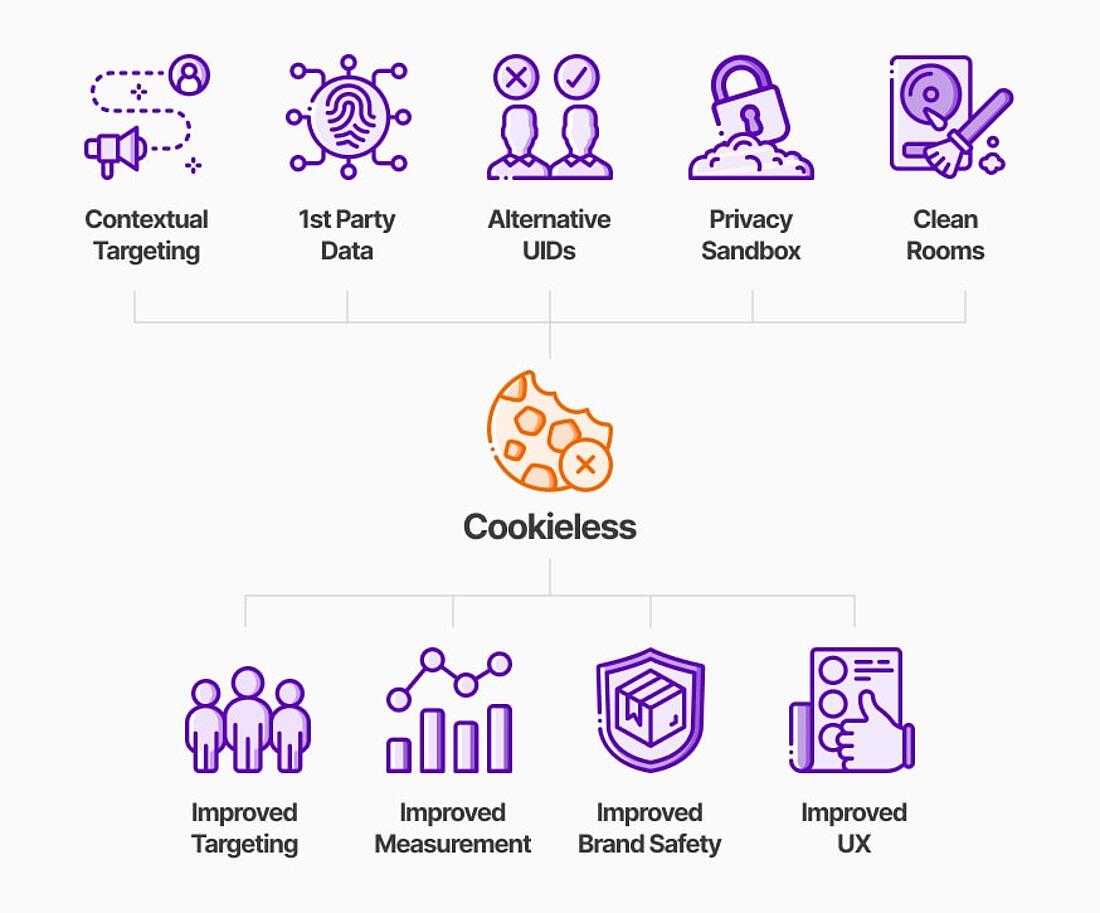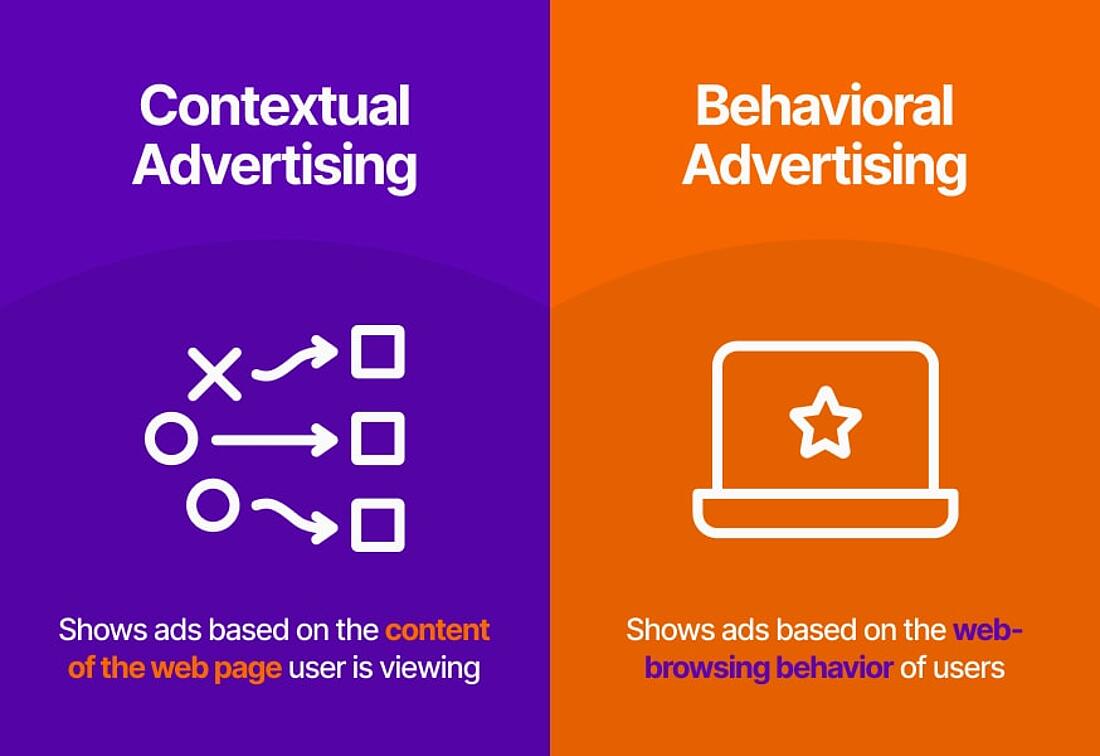- Why Us?
- Features
White Label
For SaaS Platforms & Agencies
Provide our complete analytics suite to your clients, directly within your own interface and with your/their own branding. Discover Analytics-as-a-Service and White Label Analytics. Great benefit, minimal effort.
- Pricing
- White Label
- Blog
- Chatbots, Assistants & AI Search: Tracking AI-Driven Website Traffic
- Use Case: Using TWIPLA’s Conversion Funnels to Uncover Onboarding Friction
- Website Intelligence News Roundup February 2025
- Website Intelligence News Roundup January 2025
- Alarming Behavior Tracking: Dead Clicks, Rage Clicks and More
- Data Management Strategy: Steps + Insights from Aleksejs Plotnikovs
- Craft a Successful Data Analytics Strategy in 6 Steps
- Interview: Aaron Weller on AI Privacy Challenges
- ResourcesExpand Your KnowledgeGetting Started
Understanding Cookieless Targeting
As the online world continues to migrate away from third-party cookies, businesses need to find new ways to reach their audience without compromising their legal provacy obligations or marketing effectiveness.
Cookieless targeting offers a tantilising solution.
In a cookieless future, advertising can be done using this approach to engage customers without tracking them across the web.
By relying on first-party data - information gathered from within their website or app - businesses can effectively target customers and provide them with personalized experiences without compromising their fundamental right to online privacy.
Cookieless strategies also foster trust by focusing on ethical data use and transparency, which are essential in today’s privacy-conscious climate.
Why Contextual Advertising Matters in a Cookieless World
Contextual advertising is emerging as a powerful alternative in the cookieless landscape, offering a way to reach audiences based on the content they are currently viewing rather than their browsing history.
By serving ads related to the page’s topic, contextual advertising remains relevant and respectful of privacy, as it doesn’t depend on personal data.
Despite the privacy paradox, consumer demands for privacy continue to grow and contextual targeting aligns with this shift by keeping ads relevant to users without feeling invasive.
This approach not only supports privacy goals but also boosts ad relevance, enhancing both user experience and website credibility.
8 Key Tips for Success in Cookieless Advertising
Master digital advertising in the cookieless world
As the use of third-party cookies declines, it’s essential to explore alternatives that engage users directly.
Instead of tracking users through third-party data, shift toward collecting data from customers themselves through strategies like newsletters and QR codes, or by using a privacy-compliant website survey tool.
Offering valuable content or resources in exchange for information not only helps build a more direct relationship but also respects users’ data privacy.
This approach allows you to understand your audience without compromising their security and builds trust, creating a more effective data strategy in a cookieless world.
Tap Into the Right Cookieless Tracking Tool
Despite the phase-out of third-party cookies, businesses can still collect data from websites, CRMs, and apps to target customers who’ve already shown interest.
Cookieless tracking solutions make this possible.
They often use fingerprinting to create a unique identifier during a visitor’s first visit.
Unlike cookies, this identifier isn’t stored on the visitor’s device and can’t track them beyond the website or app, ensuring privacy by keeping anonymized data collection within the analytics environment.
Revive Contextual Advertising
Contextual ads represent one of the key cookieless advertising solutions, making it a valuable strategy for businesses navigating the cookieless world.
It targets users based on the content and keywords of the page they're viewing, without relying on personal data.
For instance, someone reading about new sneakers might see ads for athletic gear, aligning with their interests without tracking their identity.
This approach feels less invasive for consumers - they only see ads relevant to the content they’re currently engaging with, making ads feel more useful and less intrusive.
While contextual ads can’t fully replace cookie-based approaches, they effectively tap into general interests without personal tracking, focusing instead on broad themes like lifestyle or music categories.
Adopt Artificial Intelligence and Machine Learning
In a cookieless world, accessing first-party data is essential, as it’s often considered more ethical than relying on third-party sources.
AI and machine learning help brands unlock value from untapped data sources, like call centers, by categorizing customer interactions into actionable digital insights.
There are privacy concerns around artificial intelligence.
But these technologies analyze large volumes of data quickly, transforming them into detailed, user-level insights while leveraging predictive modeling to anticipate customer behavior.
AI-driven systems also offer the advantage of real-time data processing, enabling brands to map customer journeys and forecast exposures with impressive speed and accuracy.
Lean on Content Marketing
In a cookieless world, content matters more than ever, providing a powerful way to engage and target audiences effectively.
Today, content goes beyond blogs and articles, encompassing images, infographics, videos, and podcasts that quickly capture attention, simplify complex information, and make content more memorable.
This is especially important as cookieless targeting relies on context, making it essential to align ads with relevant content to drive interest.
We've written a comprehensive guide to content creation.
But to summarize:
High-quality content also means addressing customers' search queries with a data-driven approach that incorporates insights from trustworthy sources, builds credibility, and fosters trust - particularly through statistics, quotes, and citations.
Keyword research is crucial, allowing agencies to analyze competitors' keywords and find less competitive terms to optimize content for visibility and relevance.
Consider People-Based Targeting
Since most smartphones and apps reject cookies, the shift to mobile has created issues for remarketing and retargeting.
Cookies are device-specific, so the trail is lost when users switch between devices or browsers, hindering suppression and leading to wasted ad spend when retargeting internet users who have already converted elsewhere.
People-based advertising, popularized by Facebook, bridges this gap by connecting ads to unique user identifiers rather than devices.
It’s a customer-centric approach, built around real-time behavioral data, that enables brands to engage with their internet users across devices and channels in real time.
Social media - and the real-time data available from social media analytics - is invaluable to marketers adapting to a cookieless world.
With every aspect of digital strategy impacted by data privacy shifts, social media offers a way to connect directly with users without third-party tracking.
Marketers can engage users through polls, giveaways, or exclusive groups on platforms, fostering community and gathering insights that enhance brand engagement.
According to eMarketer, 32% of marketers view social media profiles as essential in a cookieless future.
This underlines its role in reaching audiences directly and building relationships based on consented data sharing.
Leverage Influencer Marketing
Influencers, followed by tens of thousands, offer businesses a valuable channel to access first-party data shared on social media, including followers’ interests, locations, and demographic details.
Through surveys, comments, and DMs (considered zero-party data), followers willingly share personal insights, trusting influencers and key opinion leaders in their field. In a cookieless world, influencers can provide marketers with this audience data, allowing for targeted ad positioning.
Their genuine connection with their audience also grants access to valuable engagement insights, making influencer marketing a real help for businesses looking to craft tailored content and communicate their message to the right audience effectively.
Share article
Get Started for Free
Gain World-Class Insights & Offer Innovative Privacy & Security














